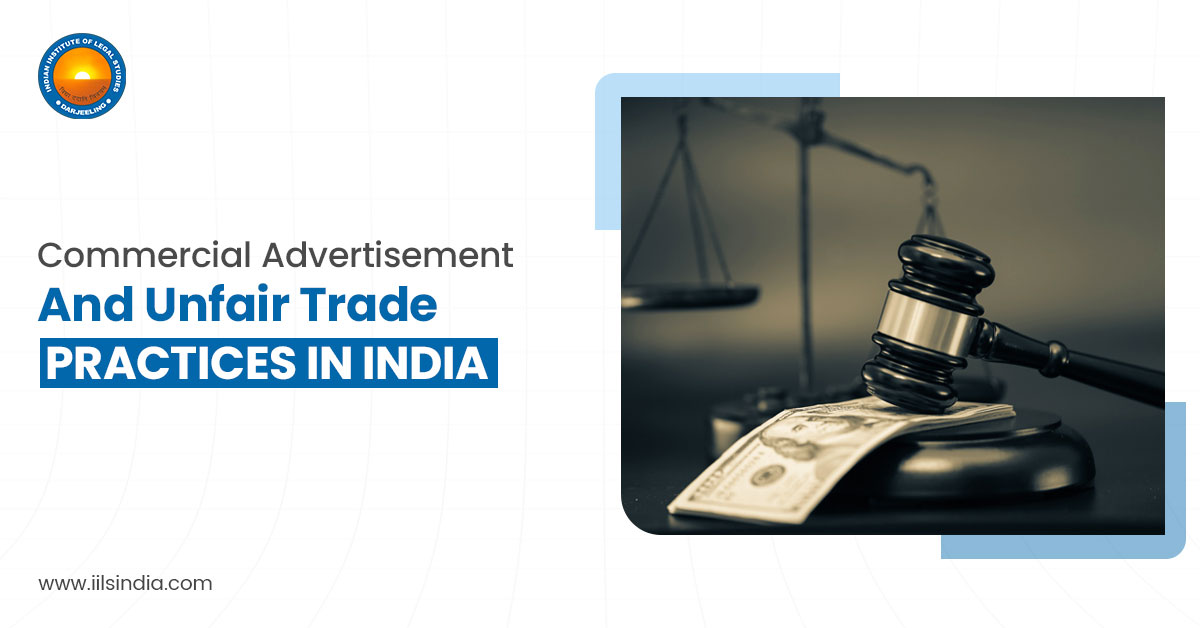Introduction
In India, the vibrant landscape of commercial advertising is a testament to the country’s dynamic market. From television commercials to social media campaigns, advertisements play a crucial role in influencing consumer behavior. However, this powerful tool can also be misused, leading to unfair trade practices that deceive consumers and distort competition. Many best colleges for law organise camps to create consumer awareness among the masses. This blog delves into the interplay between commercial advertising and unfair trade practices in India, highlighting key issues, regulatory frameworks, and the importance of ethical advertising.
The Importance of Commercial Advertisements in India
India’s diverse and rapidly growing market makes it a fertile ground for advertisements. Companies invest heavily in advertising to reach a vast audience and build brand recognition. Advertisements help introduce new products, highlight features, and create brand loyalty. However, the persuasive nature of advertisements also means they can be used to mislead consumers if not properly regulated.
Common Unfair Trade Practices in Indian Advertising
Unfair trade practices in advertising undermine consumer trust and create an uneven playing field for businesses. In India, these practices can manifest in several ways:
1. False and Misleading Advertisements: These ads contain incorrect or exaggerated claims about a product or service. For instance, a skincare brand might claim its product can lighten skin tone in an unrealistically short period without scientific evidence. Such deceptive advertising misleads consumers and can result in financial loss or health risks.
2. Surrogate Advertising: With strict regulations on advertising alcohol and tobacco, companies often resort to surrogate advertising, promoting these products under the guise of another product category, like music CDs or soda. This indirect advertising can deceive consumers and bypass legal restrictions.
3. Unsubstantiated Health Claims: Advertisements for health and wellness products, including dietary supplements and traditional medicines, often make bold claims about their efficacy without scientific validation. This can lead consumers to make uninformed health decisions, potentially endangering their well-being.
4. Celebrity Endorsements: Celebrities wield significant influence in India. When they endorse products without verifying the claims, it can mislead consumers. For example, if a celebrity endorses a weight loss supplement without evidence of its effectiveness, it can lead to consumer exploitation.
5. Fine Print and Hidden Conditions: Important terms and conditions buried in the fine print can mislead consumers. Advertisements should transparently disclose all significant information, including costs, conditions, and limitations, to avoid deceiving consumers.
Regulatory Framework in India
To combat unfair trade practices in advertising, India has established a robust regulatory framework. Key regulations and bodies include:
1. Consumer Protection Act, 2019: This Act provides a comprehensive framework to protect consumer interests and address unfair trade practices. It empowers consumers to file complaints against misleading advertisements and holds manufacturers, advertisers, and endorsers accountable.
2. Advertising Standards Council of India (ASCI): ASCI is a self-regulatory organization that promotes ethical advertising practices. It has established a Code for Self-Regulation in Advertising, which sets guidelines for truthful and non-deceptive advertising. ASCI actively monitors advertisements and can take action against those that violate the code.
3. The Food Safety and Standards Authority of India (FSSAI): FSSAI regulates food-related advertisements, ensuring that claims about food products are substantiated and not misleading. This is particularly important in preventing deceptive health claims about food and dietary supplements.
4. Telecom Regulatory Authority of India (TRAI): TRAI regulates advertisements related to telecommunications services, ensuring transparency and preventing misleading claims about tariffs, plans, and services.
The Role of Ethical Advertising
While regulations are crucial, fostering a culture of ethical advertising is equally important. Businesses must
prioritize honesty and transparency in their advertisements. This involves:
1. Evidence-Based Claims: Advertisements should be based on verifiable facts and scientific evidence. Claims about a product’s benefits or features must be substantiated to avoid misleading consumers.
2. Clear and Transparent Communication: All terms, conditions, and costs associated with a product or service should be communicated. Advertisements should avoid hiding crucial information in fine print.
3. Responsible Celebrity Endorsements: Celebrities endorsing products should conduct due diligence to ensure the claims they promote are accurate. This helps maintain consumer trust and promotes responsible advertising.
Conclusion
Commercial advertisements are a powerful tool in India’s dynamic market. However, their misuse can lead to unfair trade practices that deceive consumers and undermine market integrity. Through a combination of robust regulations, vigilant enforcement, and a commitment to ethical advertising, India can ensure that advertisements remain a positive force, fostering consumer trust and promoting fair competition. The role played by various best colleges for law in creating awareness among consumers against misleading advertisements is commendable. By prioritizing transparency and truthfulness, businesses can build lasting relationships with consumers and contribute to a healthier marketplace.

